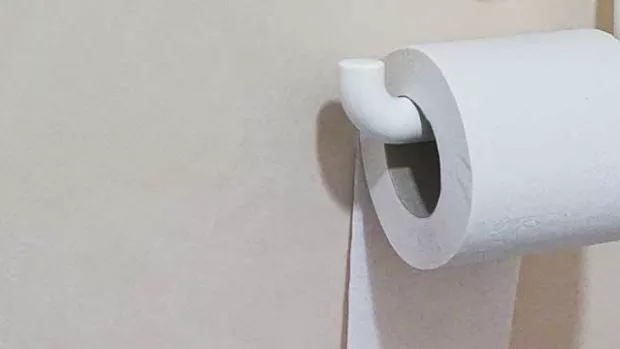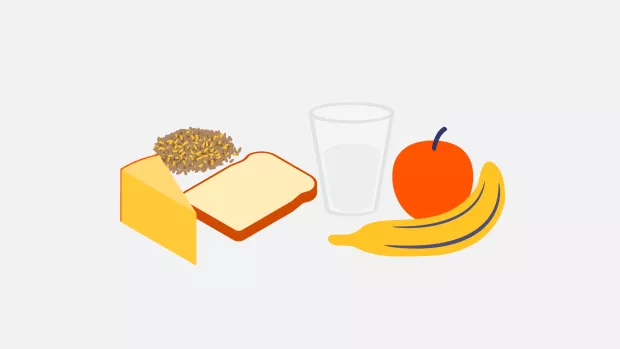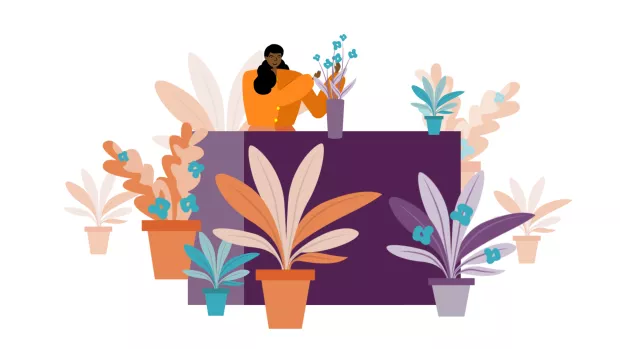
Managing bowel incontinence
Leakage from your bowel that you can't control may be something that happens once, only very occasionally, or more frequently. Whatever the frequency, it can lead to uncertainty and worry.
Like anyone else, you might get diarrhoea through infections, having an upset stomach from eating bad food, from antibiotics or medications.
But bowel incontinence in MS is often linked to constipation – stools become impacted in the bowel and there is leakage around them. There are other possible causes too.
Continence advisers are there to help.
You can self-refer to many NHS Continence Advisory Services, though in some cases you may need a referral from your GP. For details of your nearest service, contact the Bladder and Bowel Community.
The first step to getting help
An assessment is generally the first step to managing bowel incontinence.
A thorough assessment will help a health professional to work out if the problem is likely to be MS or other factors, to assess the extent of any nerve or muscle damage and to recommend the best treatment for you.
They have to ask you a lot of questions to see how they can help you. It may seem embarrassing or intrusive but it is best to answer fully. They’ll ask questions about how often you poo and what it looks like, the food you eat and how much fluid you drink, also your medical history and what medication you take (including laxatives).
They might also ask you to keep a diary showing when you poo (or try to), when you have a bowel accident and what you eat and drink.
With your permission, the doctor or nurse might look at your bottom and belly. They might put a gloved, lubricated finger inside your bottom to check how well your sphincter works. You might need tests and scans to check how your insides are working.
Tips for managing bowel incontinence
A balanced diet
Have at least five pieces of fruit or vegetables a day – ideally more. It can be tinned, dried, frozen or come as a juice. Eat a mix, not just one type of fruit or veg. Ditch white rice, regular pasta and white bread. Instead eat brown rice, whole-wheat pasta and wholemeal bread. For breakfast choose whole-grain cereals. These include porridge, Shredded Wheat, bran flakes, Weetabix or muesli (but without added sugar in it).
Snack on nuts, seeds and dried fruit. Or add them to meals, along with lentils or any kind of peas or beans. Baked beans are good too.
Some people add a tablespoon of linseeds (also called flaxseeds) to food or a yoghurt.
A regular and comfortable routine
Establishing a regular routine for going to the toilet can often help. You can plan to be in place at a time when your bowels are most likely to open, for example, 20 to 30 minutes after a meal or a hot drink.
If you have a set routine and can feel comfortable and relaxed, this can help encourage the bowel to develop a regular pattern.
Medications
Some medications – particularly any you may be taking for constipation – may be contributing to your incontinence. There can be a fine line between helping constipation with laxatives and causing bowel incontinence.
These disease modifying therapies (DMTs) for MS can also cause diarrhoea: fingolimod (Gilenya), teriflunomide (Aubagio) and dimethyl fumarate (Tecfidera).
Diarrhoea can also be a side effect of baclofen (Lioresal), taken for muscle spasms and stiffness, metformin (a diabetes drug), and of some antibiotics, antidepressants and blood pressure drugs.
Controlling leakage and diarrhoea
An anti-diarrhoea drug like loperamide (e.g. Imodium) may be effective in treating loose poo.
Putting an anal plug up your back passage can help with leakage from your bowels. A plug is made from foam and it opens up inside you so that it stays in place. You can get them on prescription after a health professional has assessed you. Talk to your continence service about plugs.
There are exercises for your sphincter and pelvic floor muscles that can help you get more control over them. There are descriptions of these exercises and more information on managing the bowel on the Bladder and Bowel Community website.
Surgery
Surgery may be an option for some people if other treatments don’t work.
This could involve having an implant fitted at the top of your buttocks that sends electrical signals to your sacral nerve. This nerve goes to your bowel, sphincter and pelvic floor muscles. The signals make the nerve behave like it should. Surgery might also mean a colostomy. A surgeon makes a permanent hole (stoma) in your belly and poo then leaves your bowel through this hole and is collected in a bag that you wear over the hole. Surgery is only used to treat bowel problems in a very small number of people.
Managing day to day
Skin care
A continence adviser or GP can guide you on preventing soreness and caring for sore skin around your bottom. This might include:
- After a bowel accident, don’t sit in a damp pad or clothing
- Wash your skin as soon as you can
- Unscented soap is best, or just water
- Don’t rub skin dry - gently pat it instead
- With dry or irritated skin use a gentle skin cleanser, not soap. Use an unperfumed moisturiser twice a day (no talcum powder)
- Avoid skin products with alcohol, disinfectants or perfumes in them. They make skin dry and inflamed.
Odour control
Ask at a continence service about dealing with laundry and problems with the smell of poo.
You can get clothing and pads with a charcoal filter fitted in them to cover the smell. A chemist may stock some deodorants and air neutralisers specially designed to control smells from wee and poo. Some are available with a doctor's prescription.
Products to help
You can get full details of pants, pads, clothing, skin care and odour control products from Continence Product Advisor. They provide advice and information for people with bladder and bowel issues.
Planning
Carry our free ‘I need some help’ card, telling people you urgently need a toilet. Get it by calling 0300 500 8084 or email [email protected]
Find a public toilet at Toilet Map or download one of the public toilet apps
Join the National (RADAR) Key Scheme. For a few pounds you get a key that lets you into over 9,000 locked accessible toilets in the UK. Get it from Disability Rights UK



